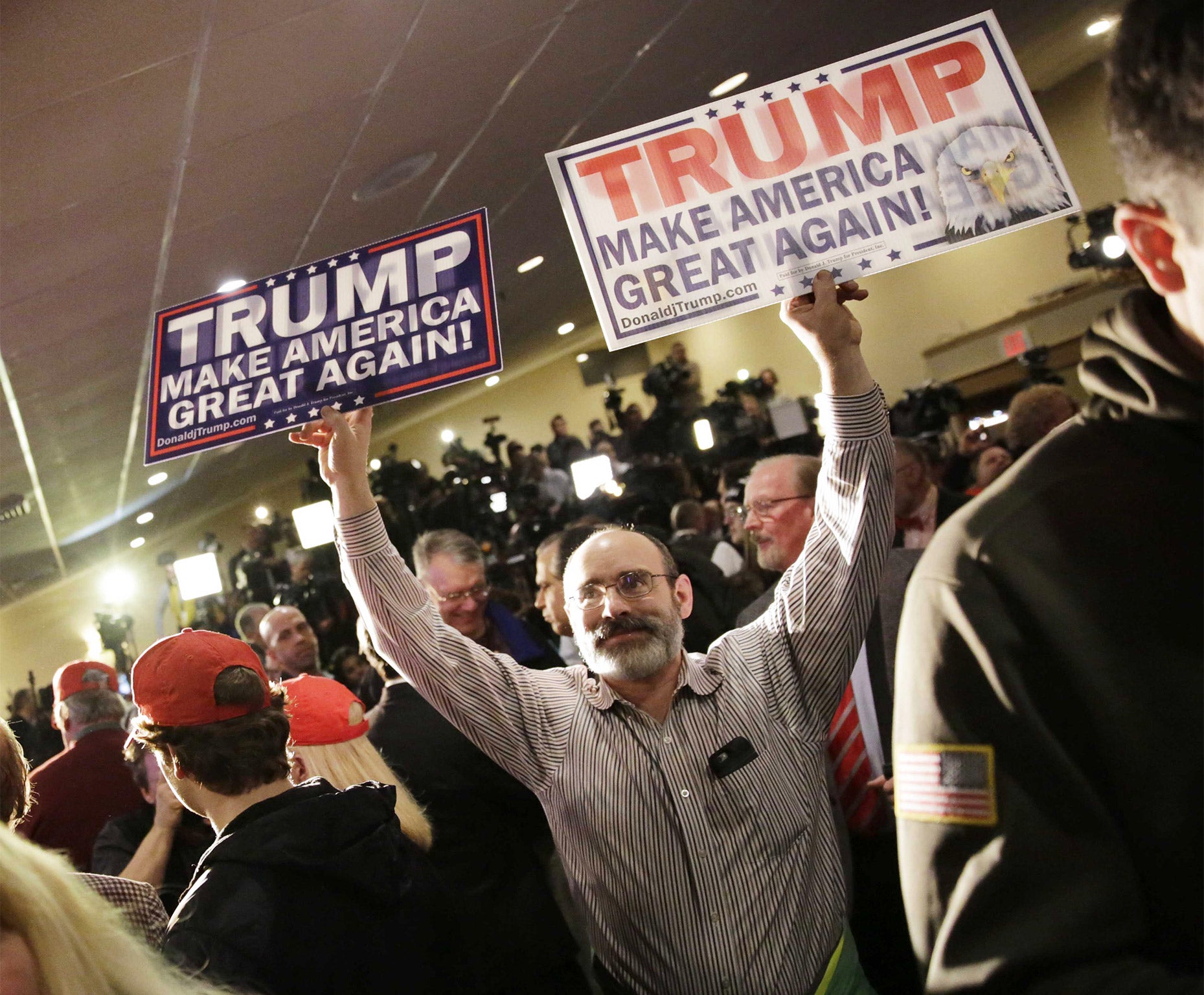US election 2016: All to play for as the party primaries circus heads to South Carolina
New Hampshire has only muddied the waters further in this race for the presidential nominations

Your support helps us to tell the story
From reproductive rights to climate change to Big Tech, The Independent is on the ground when the story is developing. Whether it's investigating the financials of Elon Musk's pro-Trump PAC or producing our latest documentary, 'The A Word', which shines a light on the American women fighting for reproductive rights, we know how important it is to parse out the facts from the messaging.
At such a critical moment in US history, we need reporters on the ground. Your donation allows us to keep sending journalists to speak to both sides of the story.
The Independent is trusted by Americans across the entire political spectrum. And unlike many other quality news outlets, we choose not to lock Americans out of our reporting and analysis with paywalls. We believe quality journalism should be available to everyone, paid for by those who can afford it.
Your support makes all the difference.And now for South Carolina – for Republicans, in nine days’ time, for Democrats a week after that, on 27 February. The stakes in both party primaries could not be higher. The battle will be ferocious and, if history is any guide, replete with dirty tricks. And Donald Trump’s ascendency is unlikely to be much dented.
The billionaire businessman goes into the contest with his customary 35 per cent or so support. His foes draw comfort by arguing that ultimately he will not win the nomination. Realists counter that if the Republican field remains so divided, 35 per cent is enough.
New Hampshire has only muddied the waters further. True, Chris Christie was a likely dropout – but only after his debate demolition of Marco Rubio destroyed the possibility that another strong performance after Iowa would seal Mr Rubio’s place as the “establishment” alternative to Mr Trump and Ted Cruz, victor in Iowa.
Instead, the Florida senator finished a dismal fifth, overtaken by governor John Kasich of Ohio and Jeb Bush, whose limp candidacy is at last coming to life. Mr Bush, moreover, has distinct advantages in the state: the backing of its senator Lindsey Graham, and support from his older brother George – whose campaign there in 2000 spread slanderous rumours about his opponent John McCain, who had routed him in New Hampshire. Victory in South Carolina cleared the way for Mr Bush’s nomination.
But Jeb Bush will be pushed to pull off that feat. Not only Mr Trump stands in his way, but also Mr Cruz, a good fit for the Bible Belt social conservatives who are far more numerous in South Carolina than in New Hampshire.
Mr Kasich is less of a threat. He goes to South Carolina with little organisation, not much money and the handicap of being the liberals’ favourite Republican. He has virtually conceded the South, saying he will focus on the midwestern industrial states like Michigan, Illinois, Wisconsin and, of course, Ohio which votes in March. Wins there are essential. The odds are, however, that he will turn out another moderate admired by Democrats who got nowhere.
Seven days later it’s the Democrats’ turn. Polls put Hillary Clinton well ahead in a state where African-Americans account for a half of Democratic voters. By then Nevada will have held its caucuses. Victory out West would put her back in the driving seat. Another defeat by Mr Sanders, though, and who knows?
Join our commenting forum
Join thought-provoking conversations, follow other Independent readers and see their replies
Comments